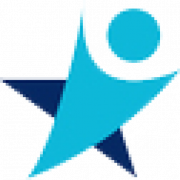Job Summary
The Licensed Practical Nurse functions as a member of the health-care team by exercising sound nursing judgment. The LPN provides direct and indirect patient care for an assigned group of patients under the direction and supervision of the RN and according to the plan of care derived from physician's orders and Registered Nurse assessment. Nursing Care includes physical care, emotional support, and patient and family education.
Essential Job Functions
- Delivers direct and indirect patient care in accordance with the Pennsylvania Practical Nurse Law, hospital policies, procedures, protocols and other professional standards of care.
- Assists the RN in collecting patient health care data on admission by completing a focused assessment in an ongoing systematic manner, focusing on the physical, psychosocial, age, cultural and spiritual needs of the patient and which contributes to the comprehensive assessment by the RN.
- Works directly with the RN to implement an individualized, age-specific plan of care and evaluate its effectiveness.
- Assists the RN in reassessment of the patient's condition and takes appropriate action as indicated or by unit specific policy.
- Involves the patient/family and other health care providers when appropriate.
- Completes patient care related activities within scheduled time periods.
- Complies with completeness, accuracy and timeliness of documentation, utilizing the electronic medical record.
- Observes, records and reports to the appropriate professional the symptoms, reaction and changes including:
- General physical and mental condition of patients, and signs and symptoms which may be indicative of untoward changes; and stresses in human relationships between patients, between patients and personnel, and between patients and their families and visitors.
- Performs nursing functions as defined in Pennsylvania regulations, such as:
- Initiates (peripheral short catheter) and maintains IV therapy;
- Assists with the rehabilitation of patients according to the medical care plan, being aware of and encouraging the interests and special aptitudes of patients.
- Encouraging patients to help themselves within their own capabilities in performing activities of daily living.
- Knowledge and application of the principles of prevention of deformities, the normal range of motion, body mechanics, and body alignment.
- Assists in providing education for the provision and coordination of patient care activities that promote and maintain health, foster self-care and improve outcomes.
- Assists the RN in assessing the patient's readiness to learn, identifying educational barriers and adapting the process to meet the needs of the patient.
- Ensures education about safely and effectively using medication, pain and managing pain, available resources, how to obtain further care, and information about responsibilities in their care.
- Acquires and distributes educational resources tailored to patient needs.
- Provides and reviews, upon request of the RN, written discharge instructions that demonstrate an inter-relationship between education, discharge planning and continuity of care.
- Maintains a collaborative relationship with physicians and other health care providers to achieve desired patient outcomes and assure a continuous flow of patient care.
- Communicates pertinent information for interdisciplinary patient care conferences, shift reports and internal and external transfers.
- Reports changes in patient's condition to the RN, including the need to reassess patient or change the plan of care; confers with the RN when there is a need to contact the physician.
- Participates in the unit performance improvement activities designed to enhance the quality of patient care and customer service.
- Assists in data collection process as requested.
- Recommends modifications for performance improvement.
- Demonstrates leadership by utilizing the concepts inherent to the practice of the professional nurse.
- Demonstrates an ability to solve problems independently and seeks assistance from immediate supervisor when appropriate.
- Delegates patient care appropriately.
- Maintains accountability for actions taken.
- Effectively functions as a resource person.
- Acts as a patient advocate.
- Performs effectively in the role of preceptor/mentor to new hires and/or students.
- Assists in maintaining/decreasing organizational/department costs.
- Assists in the department's compliance with State, TJC, OSHA and other regulatory agencies.
- Participates in continuous survey readiness for inspections and surveys.
- Participates in the non-punitive medication reporting system.
- Ensures accountability for narcotics per regulatory/organizational policies.
- Adheres to the infection control process, including standard precautions, to reduce the risk of acquiring or transmitting infections.
- Provides for patient safety in compliance with hospital and nursing department policies.
- Utilizes two forms of patient identification before implementing any form of patient care.
- Involves the patient and/or family in patient safety standards and processes.
- Minimizes the use of patient restraints and, if patient's condition warrants, monitors per individual assessed need and documents per policy.
- Assumes appropriate code team role during code situations, including internal and external disasters.
- Other duties as assigned.
Required Qualifications
- Graduate of an accredited School of Practical Nursing.
- Strong leadership ability, good organizational skills, independent and critical thinking skills, sound judgment, and knowledge of legal aspects and liability of nursing practice.
- Strong ability to communicate complex and/or controversial topics and concepts to a wide and diverse audience.
Preferred Qualifications
- Previous LPN experience.
- Pursuing a BSN degree or desire to pursue BSN with completion in 4 (four) years from start date.
License, Certification & Clearances
- Current licensure to practice as a Licensed Practical Nurse in the State of Pennsylvania
- Current Basic Life Support (BLS) approved curriculum of the American Heart Association (CPR and AED) program.
- Act 33 with renewal
- Act 34 with renewal
- Act 73 FBI Clearance
Supervisory Responsibilities
- This position has no direct supervisory responsibilities, but does serve as a coach and mentor for other positions in the department.
Position Type/Expected Hours of Work
- Incumbent will be scheduled based on operational need (rotate shifts, standby, on-call, etc.).
- Travel may be expected locally between Excela Health locations.
LEAN
- Actively promotes a Lean work culture by performing team member duties to encourage consistent use of LEAN principles and processes, including continually seeking work process improvements. Recognizes the necessity of taking ownership of one’s own motivation, morale, performance and professional development. Strives for behavior consistent with being committed to Excela’s missions, vision and values.
AAP/EEO
- Excela Health is an Equal Opportunity Employer. It is the policy of Excela Health to prohibit discrimination of any type and to afford equal employment opportunities to employees and applicants, without regard to race, color, religion, sex, national origin, age, marital status, non-job related disability, veteran status, or genetic information, or any other protected class. Excela Health will conform to the spirit as well as the letter of all applicable laws and regulations.
- Ability to perform the Essential Functions listed on the Physical Conditions and ability to perform the Essential Functions on the Working Condition chart below.
Work Environment:
Effective March 2020 or during pandemic: goggles, face shield and mask are required according to CDC guidelines
|
When lift requirement is in excess of 50#, lift assistance (2 person) and/or transfer device is required.
Essential – Absolute Necessity.
Marginal – Minimal Necessity.
Constantly – 5.5 to 8 hours or more or 200 reps/shift.
Frequently – 2.5 to 5.5 hours or more or 32-200 reps/shift.
Occasionally – 0.25 to 2.5 hours or 2-32 reps/shift.
Rarely – Less than 0.25 hours or less than 2 reps/shift.
|
Physical Condition
|
Essential
|
Marginal
|
Constantly
|
Frequently
|
Occasionally
|
Rarely
|
Never
|
|
Extreme Heat
|
|
|
|
|
|
|
x
|
|
Extreme Cold
|
|
|
|
|
|
|
x
|
|
Heights
|
|
|
|
|
|
|
x
|
|
Confined Spaces
|
|
|
|
|
|
|
x
|
|
Extreme Noise(>85dB)
|
|
|
|
|
|
|
x
|
|
Mechanical Hazards
|
|
|
|
|
|
|
x
|
|
Use of Vibrating Tools
|
|
|
|
|
|
|
x
|
|
Operates Vehicle (Company)
|
|
|
|
|
|
|
x
|
|
Operates Heavy Equipment
|
|
|
|
|
|
|
x
|
|
Use of Lifting/Transfer Devices
|
x
|
|
|
|
x
|
|
|
|
Rotates All Shifts
|
x
|
|
x
|
|
|
|
|
|
8 Hours Shifts
|
x
|
|
|
x
|
|
|
|
|
10-12 Hours Shifts
|
x
|
|
|
x
|
|
|
|
|
On-Call
|
x
|
|
|
|
|
x
|
|
|
Overtime(+8/hrs/shift; 40/hrs/wk)
|
x
|
|
|
|
x
|
|
|
|
Travel Between Sites
|
|
|
|
|
|
|
x
|
|
Direct Patient Care
|
x
|
|
|
x
|
|
|
|
|
Respirator Protective Equipment
|
x
|
|
|
|
x
|
|
|
|
Eye Protection
|
x
|
|
|
|
x
|
|
|
|
Head Protection (hard hat)
|
|
|
|
|
|
|
x
|
|
Hearing Protection
|
|
|
|
|
|
|
x
|
|
Hand Protection
|
x
|
|
|
x
|
|
|
|
|
Feet, Toe Protection
|
|
|
|
|
|
|
x
|
|
Body Protection
|
x
|
|
|
|
x
|
|
|
|
Latex Exposure
|
|
x
|
|
x
|
|
|
|
|
Solvent Exposure
|
|
|
|
|
|
|
x
|
|
Paint (direct use) Exposure
|
|
|
|
|
|
|
x
|
|
Dust (sanding) Exposure
|
|
|
|
|
|
|
x
|
|
Ethylene Oxide Exposure
|
|
|
|
|
|
|
x
|
|
Cytotoxic (Chemo) Exposure
|
|
Chemo Units
|
|
Chemo Units
|
|
|
X all other
|
|
Blood/Body Fluid Exposure
|
x
|
|
|
|
x
|
|
|
|
Chemicals (direct use) Exposure
|
x
|
|
|
|
x
|
|
|
|
Mist Exposure
|
|
|
|
|
|
|
x
|
|
Wax Stripper (direct use)
|
|
|
|
|
|
|
x
|
|
Non-Ionizing Radiation Exposure
|
|
|
|
|
|
|
x
|
|
Ionizing Radiation Exposure
|
|
|
|
|
|
|
x
|
|
Laser Exposure
|
|
|
|
|
|
|
x
|
Physical Demands
|
When lift requirement is in excess of 50#, lift assistance (2 person) and/or transfer device is required.
Essential – Absolute Necessity.
Marginal – Minimal Necessity.
Constantly – 5.5 to 8 hours or more or 200 reps/shift.
Frequently – 2.5 to 5.5 hours or more or 32-200 reps/shift.
Occasionally – 0.25 to 2.5 hours or 2-32 reps/shift.
Rarely – Less than 0.25 hours or less than 2 reps/shift.
|
Physical Condition
|
Essential
|
Marginal
|
Constantly
|
Frequently
|
Occasionally
|
Rarely
|
Never
|
|
Bending (Stooping)
|
x
|
|
|
x
|
|
|
|
|
Sitting
|
x
|
|
|
|
x
|
|
|
|
Walking
|
x
|
|
|
x
|
|
|
|
|
Climbing Stairs
|
|
x
|
|
|
|
x
|
|
|
Climbing Ladders
|
|
|
|
|
|
|
x
|
|
Standing
|
x
|
|
|
x
|
|
|
|
|
Kneeling
|
|
x
|
|
|
|
x
|
|
|
Squatting (Crouching)
|
x
|
|
|
|
x
|
|
|
|
Twisting/Turning
|
x
|
|
|
|
x
|
|
|
|
Keyboard/Computer Operation
|
x
|
|
|
x
|
|
|
|
|
Gross Grasp
|
x
|
|
|
|
x
|
|
|
|
Fine Finger Manipulation
|
x
|
|
|
x
|
|
|
|
|
Hand/Arm Coordination
|
x
|
|
|
|
x
|
|
|
|
Pushing/Pulling(lbs. of force)
|
x
|
|
|
10#
|
50#
|
|
|
|
Carry
|
x
|
|
|
|
25#
|
|
|
|
Transfer/Push/Pull Patients
|
x
|
|
|
x
|
|
|
|
|
Seeing Near w/Acuity
|
x
|
|
x
|
|
|
|
|
|
Feeling (Sensation)
|
x
|
|
|
x
|
|
|
|
|
Color Vision
|
x
|
|
|
|
x
|
|
|
|
Hearing Clearly
|
x
|
|
x
|
|
|
|
|
|
Pulling/Pushing Objects Overhead
|
x
|
|
|
|
|
x
|
|
|
Reaching Above Shoulder Level
|
x
|
|
|
|
x
|
|
|
|
Reaching Forward
|
x
|
|
|
x
|
|
|
|
|
Lifting Floor to Knuckle
|
x
|
|
|
|
|
10#
|
|
|
Lifting Seat Pan to Knuckle
|
x
|
|
|
|
50#
|
|
|
|
Lifting Knuckle to Shoulder
|
x
|
|
|
|
|
20#
|
|
|
Lifting Shoulder to Overhead
|
x
|
|
|
|
|
10#
|
|
When lift requirement is in excess of 50#, lift assistance (2 person) and/or transfer device is required.









